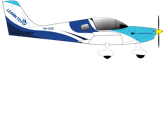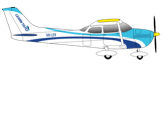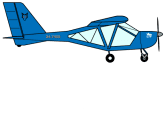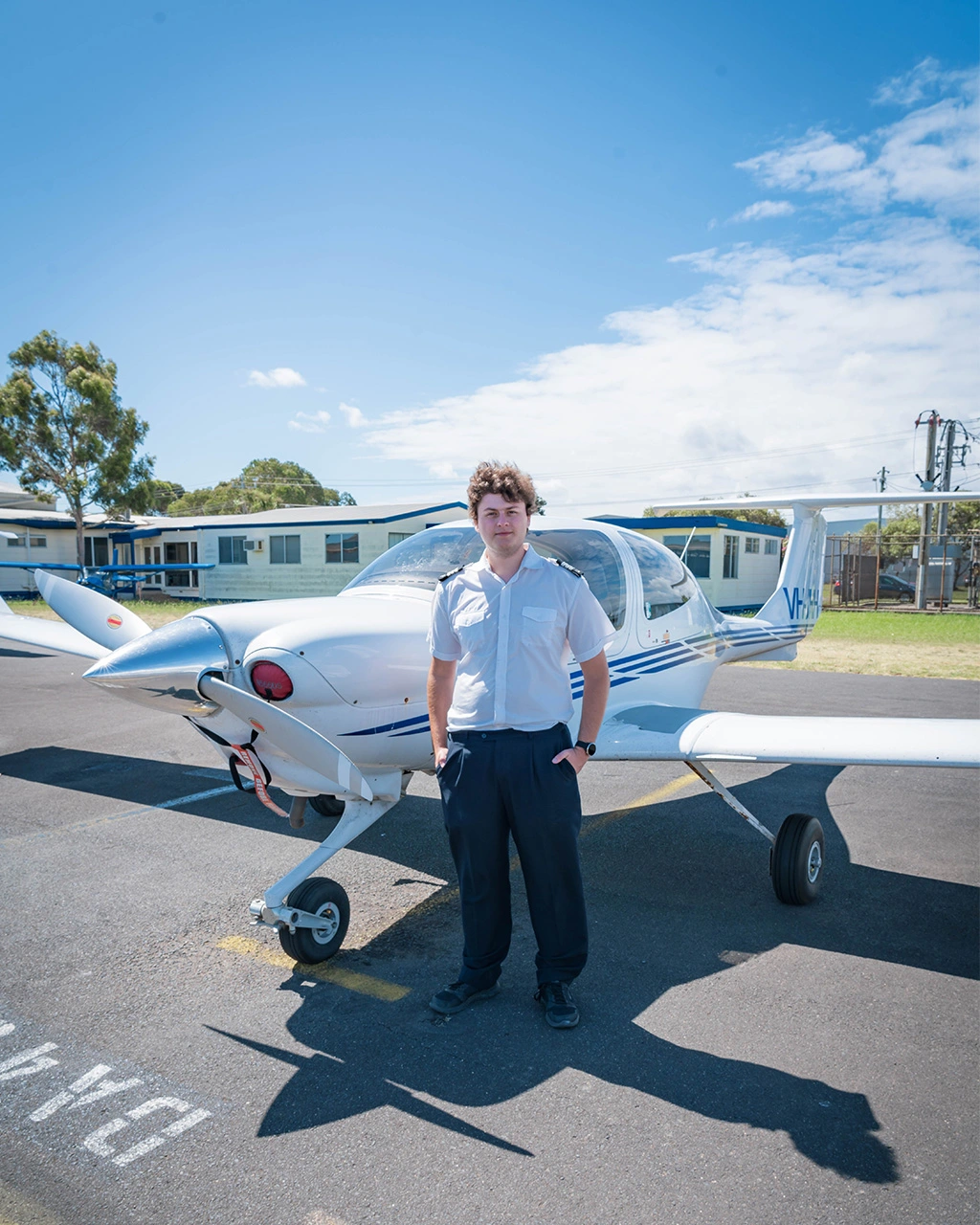
February 04, 2023
Pilot Theory Exam Preparation
Learning to fly is extremely exciting and rewarding, but there are theory exam checkpoints along the way that are crucial to becoming a great pilot. If exams aren’t your forte, you don’t need to worry! We have summarised everything you need to know here, and we have more helpful content coming your way.
Before we get into our pilot theory exam preparation tips, there’s one key lesson that you should remember before you attempt your pilot theory exams. If you don’t pass an exam, it is not a failure. In fact, it’s an opportunity. It’s an opportunity to improve, to become a better pilot and to master the knowledge that will accelerate you into your recreational or commercial pilot career.
Many pilots will tell you about the errors that they’ve made along the way and the improvements that they caused.
If you’re reading this, there’s a good chance it means that you genuinely care about your pilot theory exam results. That’s the first sign that you’re on the way to becoming a great pilot. Now, let’s get you ready for your pilot theory exam preparation.
Lesson 1: It can be done!
Many pilots have flown the skies before you. Do you know what this means? It means that the theory exams are passable, and you can do them too. The first step in exam preparation is knowing that the exams aren’t there to trip you up, but to make sure you know your stuff. If others can do it, so can you.
Setup Your Exam Preparation Timetable
Treat exam preparation like it’s your job. You can set up a weekly timetable, with daily tasks to check off. This helps you achieve a few things. Firstly, it creates a structure for your learning so that you’re not cramming everything into a last-minute panic. Secondly, it breaks things up into smaller tasks so that the study and preparation aren’t so overwhelming.
Finally, it also breaks up your study blocks into reasonable amounts of time. One or two hours of study per day will mean you are much more focused during your study, which helps with information retention. If you try to study too much, for too long, you’ll exhaust your mind and struggle to remember details.
Repetition Is Key
One of the best learning techniques is repetition, so use it to your advantage. A great way to do this in your pilot theory exam preparation is by using practice questions and exams to repeat the process of comprehending a question and forming the correct answer.
In addition to this, you should record your results on the questions and practice exams. Each time you attempt them, you’ll note your progress and improvement. You will also notice the areas where you might need more work. Identifying these areas means you can focus your time improve where you need a bit more practice.
Similarly, you should start to time yourself through the exams. You should be aiming to pass successfully within the allocated timeframe.
Know Your Exam Resources
Are you familiar with the tools and resources you can take for your exams? Do you know how to use them and find information quickly? Some exams have different tools and permitted materials. This can also change slightly if you’re undertaking an internal exam with your school, or if you’re undertaking a CASA exam.
Most pilots agree that you should pick your one set of study materials, and stick with them. Whatever the case, find out what you’re allowed to take into the exam and make sure you’re using those resources the entire way through your exam preparation.
When it comes to exam day, you will have mastered your resources and you’ll be well-positioned to find information and answer questions in a timely manner. When you can do this, it makes the exams much less stressful – you’ll know how to use your tools and equipment (such as a flight computer), and you’ll know where to look to answer your questions.
Know When To Ask For Help
If you’re finding some questions or topics difficult to master, don’t break your study streak with frustration! If you need help, you should always be ready to ask. Depending on what support you need, you have a number of options.
There might be classes at your local school that cover the topic you need help with (for example, meteorology). Or you can ask a fellow flight training student to help you out – and you might be able to help them! For lots of simple things, you can join social media groups and pages – there is a constant stream of students, and perhaps one of them has a way of learning or remembering a topic that will help you.
Another option is to arrange a private or joint tutorial with an instructor – they’re always happy to do so!
Know When To Ask For Help
The only thing as important as your pilot theory exam preparation is taking a break… from your pilot theory exam preparation. Even whilst you’re having a day off, your mind will still have flight training concepts and lessons lurking in the background. Switching off from them occasionally can help you switch them on when you need to. A fresh mind is a productive mind.
Similarly, you should be aiming to study in structured pieces of time. This is somewhat dependent on the topic you’re working on and your personal attention span. If you’re finding that after 45 minutes you’re struggling to focus, it’s time to make a cup of tea and walk outside for a moment, before getting back into the books.
How Much Study Is Enough?
There is passing your exams and really passing your exams. The best pilots always aim for the latter.
There is no minimum or maximum amount of study that is required, it’s simply the amount of time that it takes you to achieve the best that you can. Below are some indicative study time commitments that have been reported amongst some of our students. Again, this isn’t a requirement but it can help give you an indication as to what time commitments you should make if you want to become an exceptional pilot. Ultimately you will need to study for the amount of time that it takes you to achieve the level of preparation that you are comfortable with.
RPL exams – Most people pass with 26 to 50 hours of exam preparation and revision.
- PPL Exam – Think in terms of 50 to 75 hours for class, tuition, home study and general reading for each exam.
CPL Exams – Many students report around 75 to 100 hours of class, tuition, home study and general reading for each exam.
ATPL Exam – 50 – 75 hours per subject.
ATPL Flight Planning exam – 55 – 80 hours.
How Much Study Is Enough?
Everyone can excel or struggle with different exams, strengths and weaknesses. Having said that, the exams that take more time and preparation amongst the majority of students are:
1. CPL Performance
2. IREX
3. CPL Meteorology
4. PPL
5. CPL Aircraft General Knowledge
The first two exams are particularly reported as needing more preparation – but with focus and support, you can pass!
Exam Day
Once exam day arrives, there’s only so much you can do – you’ve already done the hard work. Here’s what you should focus on:
- 1. Get a good night’s rest.
- 2. Have your exam materials ready to go the night before, so that all you need to do is show up.
- 3. Eat well and stay hydrated before the exam.
- 4. Read each question twice to ensure you understand and look for common traps.
- 5. Mark any questions that you might stumble on. Finish everything else, then focus on the tough ones.
- 6. Check all of your questions and answers to watch for basic errors.
- 7. Don’t be tempted to leave early. Keep checking your work and attempting every question.
- 8. When the exam time is over, go and do something fun to get your mind off it. It’s done. Now it’s time to wait and see!
What Else Should I Know?
We’ve compiled a few useful posts that might help you out. Where ever you are on your flight training journey, the team at Learn To Fly Melbourne are here to help. We want you to pass your exams and have an excellent career, so please reach out if we can help support you through your course and studies!
Tips On How To Pass Pilot Theory Exams
Here we give you the scoop on what to expect and provide some tips on how to pass pilot theory exams.
- Aviation Schools in Melbourne: Why Learn to Fly is Your Best Bet
The aviation school you choose will make a big difference in your flight training journey. Here’s why you should learn with the best! - Flight Schools in Australia – How Do I Choose the Right One?
Here is a breakdown of what kinds of schools are available, and how the different environments can affect what your learning experience will be like.
Learn To Fly: Flight Training Courses For Every Pilot
We have every aviation course you need, including recreational or commercial. This post discusses the pathways and career options for pilots operating in Australia.
Training Beyond The Private Pilot Licence (PPL)
After completing your Private Pilot Licence you might wonder, “what’s next?” As strange as it may sound, many pilots are still keen to do more training after achieving their initial goals. Realistically, if you want to fly regularly or as a job, learning is ongoing. Let’s take a look at training beyond the Private Pilot Licence.
How To Get The Most Out Of Your Pilot Licence
This post will help you get the most out of your pilot licence in easy steps.
Chat with one of our flight training specialists to get your pilot training off the ground. Email hello@learntofly.edu.au or go to https://drift.me/learntofly/meeting to book a meeting and school tour.


